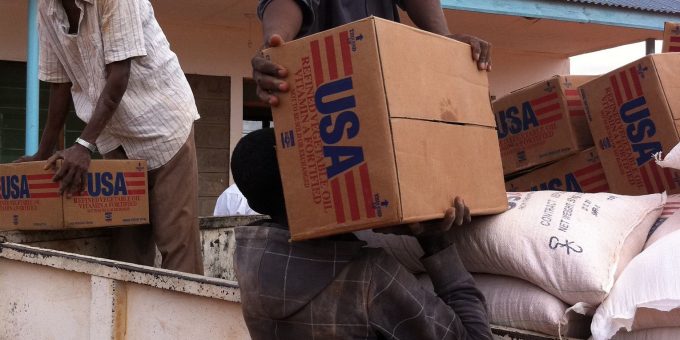
In the Dadaab camp at the Kenya-Somalia Border, amid devastating drought, refugees help unload international food aid from the Alliance to End Hunger. Photo by Sodexo USA, Flickr CC. https://flic.kr/p/atcEMc
food insecurity triggering migration
Well-worn explanations of international migration flows focus on factors such as poverty and political instability. New evidence, however, shows migration is increasingly associated with climate change and food insecurity (or FI)—defined by the UN’s Food and Agriculture Organization as the “situation when people lack secure access to sufficient amounts of safe and nutritious food for normal growth and development and an active and healthy life.”
In their recent International Migration Review article, economists Michael D. Smith and Dennis Wesselbaum first establish that significant link, then examine how the distribution of FI impacts regular, permanent international migration flows. They find that the origin country’s FI has a stronger impact on out-migration than does national income or changes in temperature—a fact that’s true on two levels. First, the more severe the FI, the larger the association with migration flows out of a country. Second, individuals suffering more severe FI have a stronger incentive to migrate, leading to uneven migration patterns within the origin country.
Documenting the impact of FI on migration suggests that policies directed at one phenomenon will likely affect the other. Food assistance interventions may influence migration behavior, and migration policies may help alleviate FI. Moreover, reducing inequality by targeting the population below the mean prevalence of FI would have strong impacts on migration flows. To achieve interlinked global targets, such as those set out in the United Nations’ Sustainable Development Goals, coordinating approaches to issues like migration and food security strategy may increase policy impacts.

Comments 1
kyah0523
March 18, 2023To achieve interlinked global targets, such as those set out in the United Nations’ Sustainable Development Goals, coordinating approaches to issues like migration and food security strategy may increase policy impacts.